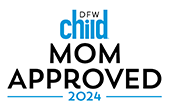A lot of us have little ones that misbehave & push our buttons! Especially these days with being in quarantine and spending more time together as a family unit. Here are some tips to help you get them to listen better & cooperate more, without relying on fear, force, bribery & rewards.
True power can be found in these 8 strategies that will have you redirecting your kids up and out of misbehavior. Here are some strategies:
- Ask for what you want: Example: Instead of “don’t hit your baby brother” Try: “Use soft gentle hands with your baby brother so he stays safe”
- Seek to understand – When parents slow down to seek to understand what’s going on (instead of assuming negative intent in their child), kids respond a lot better.
- Use empathy often – Empathy is like a superpower … it’s not always easy to muster up empathy for others, but when you do, it does great things for relationships & aids in creative problem solving. When you’re not seeing “eye to eye” but someone slows down to listen & say “I can totally see why you feel upset about this situation, help me to understand more how you’re feeling.” … you instantly feel somewhat better & able to hear them out or problem solve with them right?
- Be patient – I know this is easier said than done… but parents, you’ve got to trust me, slowing down is good for ALL of us & our kids just give us lots of opportunities each day to freeze time for a moment. Try to leave time/margin for this in your day.
- Use friendly eye contact & gentle touch – When we come in with a soft hand on their shoulder, friendly eye contact and a warm smile …. it can really “bring them back down to earth” and ground them. After our soft touch & friendly smiled has been offered, we can THEN ask them to please get their shoes on, or brush their teeth, or clean up the toys … whatever we need them to do.
- Listen intently – Try asking them “what’s going on” instead of saying “why are you being so bad?” If we slow down & hold space for our kids, they often will open up & explain why they are acting a certain way, which helps us then correctly asses which category of misbehavior they are in, so we can effectively redirect them up & out towards better behavior.
- Use a neutral, respectful tone – they will respond and cooperate better!
- Implement fresh starts – it’s okay to say “I want to try that again because this morning didn’t go as planned. I know we can do this together if we put our hearts & minds together, can we start fresh & try again this afternoon?”
We ALL want to have peaceful, joyful, connected days with our kids, but often times … power surge stages of life (like the toddler, tween & teen years) can drive us to become parents we never wanted to be. So parents, let’s try less threatening, punishing, scolding, yelling, scaring, or forcing to get the desired behavior we want. Let’s try to focus on the good, instead of pointing out our kids’ flaws. Think twice before bribing for good behavior and start expecting more from your children. Sometimes giving your children some responsibility and expectations can help them rise to the occasion. Now don’t get me wrong, no one is perfect – child or parent alike – and sometimes these extraneous strategies can be helpful in the short-term. However, long-term there will be less power struggles, even with a strong-willed kid, if you use those strategies above.
-Sarah Caudle, PA-C



